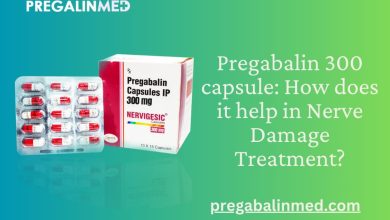A vital mineral that is important for maintaining healthy health is vitamin D. It is essential for bone strength, immune system function, and overall well-being. In this comprehensive article, we will delve into the importance of vitamin D, its sources, benefits, and how to ensure you get enough of this vital vitamin. So, let’s explore the sun-kissed world of vitamin D!
-
Understanding the Importance of Vitamin D
Vitamin D is a fat-soluble vitamin that acts as a hormone in the body. Its primary role is to regulate the absorption of calcium and phosphorus, both critical for maintaining strong bones and teeth. Additionally, it plays a pivotal role in supporting immune function, modulating cell growth, and reducing inflammation.
-
Sources of Vitamin D
The sun and particular foods are the two main sources of vitamin D. When your skin is exposed to sunlight, it synthesizes vitamin D naturally. However, factors such as geographic location, time of day, and skin pigmentation can influence the amount of vitamin D produced. Foods rich in vitamin D include fatty fish (salmon, mackerel, and tuna), egg yolks, fortified dairy products, and some types of mushrooms.
-
The Benefits of Vitamin D
Adequate vitamin D levels offer a myriad of health benefits. Some of the key advantages include:
– Stronger Bones
Vitamin D, in conjunction with calcium, is vital for building and maintaining strong bones. Both rickets in youngsters and osteocalcin in adults can be avoided thanks to it.
– Enhanced Immune Function
The immune system benefits greatly from vitamin D. It helps the body fend off infections and reduces the risk of chronic diseases.
– Mood and Mental Health
Research suggests that vitamin D may positively impact mood and mental health. It has been linked to a reduced risk of depression and other mood disorders.
– Cardiovascular Health
Some studies indicate that sufficient vitamin D levels may contribute to a healthier heart and reduced risk of cardiovascular diseases.
-
The Link Between Vitamin D and Sun Exposure
Sun exposure is an essential factor in obtaining Vitamin D Benefits naturally. When sunlight touches your skin, it triggers the production of vitamin D in the body. However, it’s crucial to balance sun exposure with the risk of skin damage from ultraviolet (UV) rays. Spending 10 to 30 minutes in the sun, two to three times a week, can be sufficient for most people to maintain adequate vitamin D levels.
-
Factors Affecting Vitamin D Absorption
The following variables can affect how well vitamin D is absorbed:
– Season and Geographic Location
People living in regions with limited sunlight exposure during certain seasons may be at risk of vitamin D deficiency.
– Skin Tone
Individuals with darker skin pigmentation may require more sun exposure to produce the same amount of vitamin D as those with lighter skin.
– Sunscreen Use
While sunscreen is crucial for shielding your skin from damaging UV rays, it can also inhibit the production of vitamin D. It is advisable to balance sun protection with some unprotected sun exposure.
-
Vitamin D Supplements: A Convenient Alternative
For those who struggle to obtain sufficient vitamin D through sunlight and diet alone, supplements can be a practical solution. Vitamin D supplements come in various forms, such as vitamin D2 and vitamin D3. Before starting any supplementation, it’s best to consult with a healthcare professional to determine the appropriate dosage for your individual needs.
-
Special Considerations for Vitamin D
Certain groups may be at a higher risk of vitamin D deficiency and should pay extra attention to their intake:
– Older Adults
As we age, our skin’s ability to produce vitamin D decreases, making older adults more susceptible to deficiency.
– Breastfeeding Infants
Breast milk contains limited amounts of vitamin D. Breastfeeding infants may require supplementation to meet their daily needs.
– People with Limited Sun Exposure
Individuals who spend most of their time indoors or wear clothing that covers their skin may need extra vitamin D from dietary sources or supplements.
-
Conclusion
In conclusion, vitamin is a critical nutrient that plays an essential role in bone health, immune function, and overall well-being. Sunlight and certain foods are the primary sources of this vital vitamin, and it offers numerous health benefits, from stronger bones to enhanced immune function. While sun exposure is essential for obtaining vitamin D naturally, it’s crucial to strike a balance between sun safety and meeting your vitamin D requirements. For those who have difficulty obtaining enough vitamin D through sunlight and diet alone, supplements can be a convenient and effective solution. Remember, a well-balanced intake of vitamin D is key to staying healthy and ensuring your body functions optimally.





